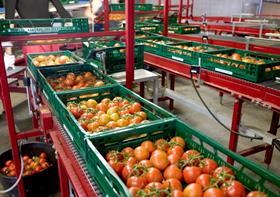
An extensive European study commissioned by the German organisation Stiftung Initiative Mehrweg (SIM) has concluded that reusable containers (RPCs) for fruit and vegetables result in no less than 60 per cent lower carbon dioxide emissions than cardboard packaging.
The independent German research institute Fraunhofer carried out the research in April 2018, with the aim of helping players in the fresh food supply chain make well-founded choices to further reduce their carbon footprint.
According to fresh produce RPC specialist Euro Pool System, the results were a 'further confirmation that reusable packaging can make a positive contribution to reducing CO2 emissions'.
The scientists compared the CO2 emissions of one-off cardboard boxes with reusable plastic containers. They assumed the transport of 1,000 tonnes of fruit and vegetables. When using reusable packaging, the emissions amounted to 14.5 tonnes. When using cardboard packaging, CO2 emissions amounted to 37.7 tonnes, meaning emissions from using reusable packaging were much lower per rotation.
In the comparison between the packaging systems, the scientists included the production of the material, its life cycle and its disposal.
They based this on actual transport distances in Germany, Spain, Italy, the Netherlands and France. The research was carried out according to the requirements of ISO 14040/44. These international standards focus mainly on the process of performing a Life Cycle Assessment.



